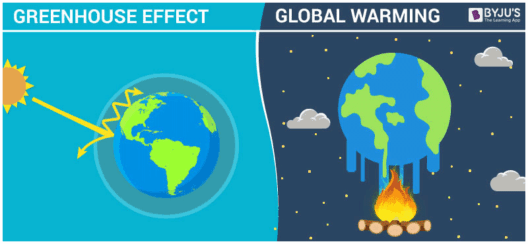In recent years, the discourse surrounding climate change has progressively intensified, illustrating a nation divided. The phenomenon of global warming has sparked fervent debate, and public opinion has become a complex tapestry woven from diverse perspectives, influenced by geography, education, socio-economic status, and personal convictions. This division is not merely a reflection of scientific understanding but is deeply entwined with cultural beliefs, values, and political ideologies.
At the heart of this division lies a fundamental question: how many Americans genuinely believe in global warming? While the majority of evidence in scientific communities supports the notion that climate change is not only real but also exacerbated by human activities, public sentiment remains far from unanimous. This dichotomy prompts a closer examination of societal attitudes towards climate science and its implications for policy and individual responsibility.
In recent surveys, a paradox emerges where a growing number of individuals express concern about climate change, yet a significant portion remains skeptical. This skepticism is often rooted in a confluence of factors, including misinformation, a lack of access to reliable information, and competing priorities that overshadow environmental issues. In examining the statistics, we see that while approximately a majority acknowledges the reality of global warming, an alarming minority vehemently rejects it, claiming it to be an exaggerated or fabricated threat.
Demographic factors play a crucial role in shaping opinions. Younger generations, particularly those exposed to climate education and advocacy from an early age, tend to demonstrate higher levels of belief in climate change compared to their elders. Conversely, older demographics, who may possess entrenched views and skepticism fostered by a different cultural context, exhibit more resistance to accepting the implications of global warming. This generational divide highlights the necessity for effective educational approaches in fostering understanding and urgency surrounding environmental issues.
Political affiliation is another significant determinant affecting beliefs about global warming. The polarization of environmental issues along partisan lines has contributed to a landscape where acceptance or denial of climate change often aligns with political ideologies. Republicans and conservatives historically show lower levels of belief in scientific consensus on global warming, which can be traced back to apprehensions about the economic ramifications of imposing regulatory measures to combat climate change. In contrast, Democrats and liberals frequently advocate for proactive legislation aimed at mitigating environmental degradation. This partisan divide exhibits the challenges faced by advocates of climate action, who must navigate a complex political terrain to engender widespread support.
Moreover, the role of mass media cannot be overlooked in shaping public perceptions of climate change. Representations of global warming in news outlets, documentaries, and social media platforms contribute significantly to how individuals perceive the legitimacy of scientific claims. Sensationalist reporting can polarize opinions further, leading to confusion and skepticism rather than enlightenment. Equally troubling is the deliberate dissemination of misinformation by certain interest groups, eroding public trust in scientific institutions and fostering a climate of doubt. Therefore, the responsibility of the media emerges as crucial in either bridging the divide or exacerbating it.
Subsequently, the implications of this division extend beyond mere opinion polls; they have tangible effects on policy formulation and implementation. When a significant portion of the populace remains unconvinced of climate change, it creates an impediment to enacting meaningful environmental legislation. Policymakers may be deterred from pursuing ambitious climate initiatives due to fears of electoral backlash from constituents who do not endorse such measures. This reluctance to engage with pressing environmental challenges threatens not only the well-being of future generations but also the stability of ecosystems that support life on Earth.
To bridge this divide, a paradigm shift in the way climate change is approached and discussed is paramount. First and foremost, enhancing public education about climate science is indispensable. Emphasizing the empirical evidence, the consensus among scientists, and the potential consequences of inaction can foster informed discourse. Educational institutions must take the lead in equipping students with the knowledge and critical thinking skills necessary to navigate the complexities of climate change. Furthermore, engaging community dialogue around the topic, fostering spaces for discussion without derision, can create environments where individuals feel safe expressing and re-evaluating their beliefs.
However, fostering belief in climate change is only one piece of the puzzle. A holistic approach is required to cultivate a culture of environmental stewardship. Individuals must be empowered to take personal responsibility for their impact on the environment. By promoting sustainable practices, such as reducing waste, conserving energy, and supporting renewable energy initiatives, communities can unite around a common cause, transcending ideological boundaries. Transformative change happens at the grassroots level as communities organize and advocate for policies that protect the environment and engender resilience against the impacts of climate change.
As conversations unfold about the realities of climate change, the potential for a national awakening looms on the horizon. Bridging the divide between believers and skeptics could lead to a collective realization of the grave consequences of inaction. Society stands at a crossroads, and how it chooses to engage with the issue of global warming will determine the legacy left for future generations. Ultimately, the pursuit of common ground is not merely a necessity but an imperative for the survival of the planet and all its inhabitants.








